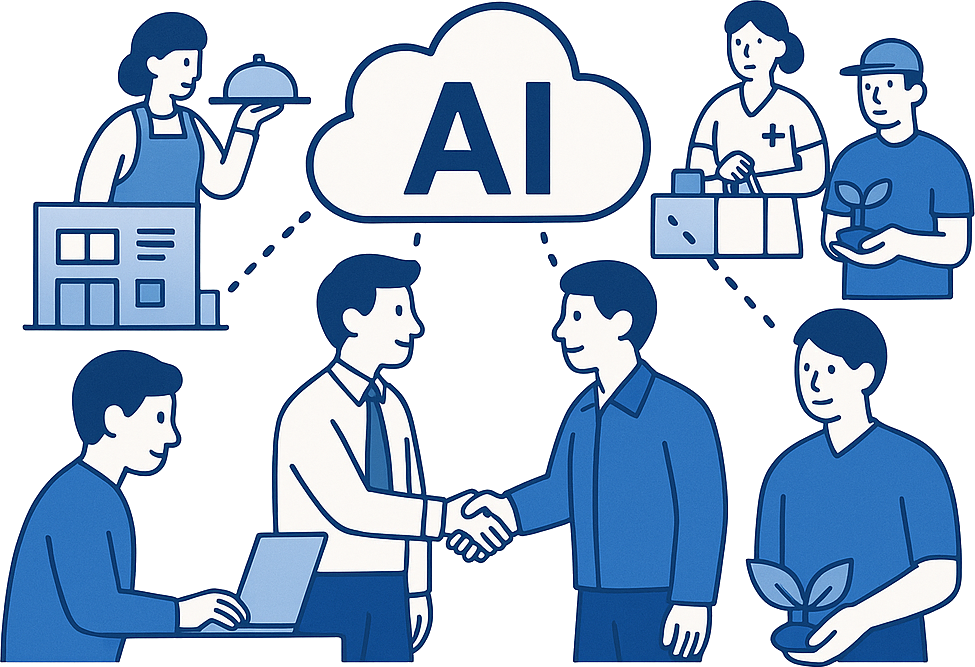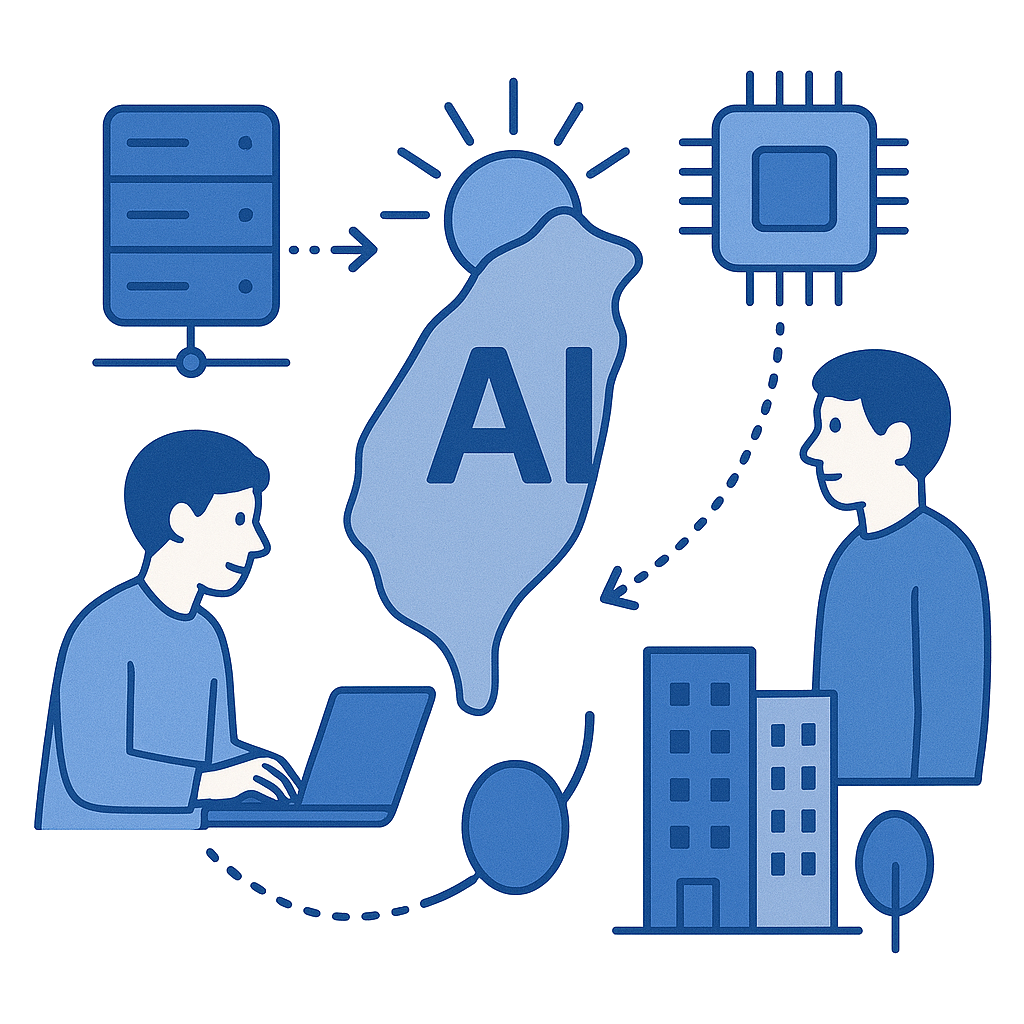Launching Industrial Revitalization through Smart Integration
This program aims to connect universities and colleges to assist small and medium-sized enterprises (SMEs) in adopting AI technologies. Through inter-ministerial collaboration, it integrates the needs of industry associations, academic research institutions, and the private sector, establishing multi-stakeholder collaboration platforms to address critical challenges during industrial transformation.
The program provides concrete AI solutions targeting pain points encountered by SMEs during transformation. It also encourages the IT services sector and academia to form interdisciplinary teams, develop AI application technologies with practical problem-solving capabilities, and provide system design, computational resources, on-site facilities, and mentorship support. This multi-stakeholder collaboration platform aims to comprehensively enhance the digital competitiveness of industries.
As the first step in promoting smart integration for industrial revitalization, in 2025 (Year 114 of the ROC calendar) the program prioritizes the adoption of AI technologies in the healthcare and smart food & beverage sectors in the Greater Southern Region to enhance market competitiveness. Through industry-academia collaboration, it fosters technological innovation and talent development while promoting scalable AI application models.The healthcare industry will leverage AI to improve service quality and management efficiency, driving upgrades in home-based healthcare and long-term care services. The smart food & beverage sector will enhance operational efficiency and customer experience, contributing to industrial upgrading and overall economic growth in the southern region.


Policy Background and Implementation Directions
This program follows the government’s “National Hope Project – Innovative Economy, Smart Nation” development blueprint, actively promoting Taiwan’s vision of becoming an “Island of Artificial Intelligence.” To assist SMEs, traditional industries, and the service sector in accelerating digital transformation, the program focuses on dual axes of industrial innovation and entrepreneurial innovation. It encourages the commercialization of academic research results, promotes collaboration with industry associations, and accelerates the deployment and application of technologies.At the same time, the government is actively developing micro-scale AI applications and building a comprehensive innovation and entrepreneurship ecosystem to promote bidirectional development: AI industrialization and the AI adoption of industries.
Furthermore, this program aligns with the “Smart Technology Greater Southern Industrial Ecosystem Promotion Plan” proposed by the National Science and Technology Council (NSTC). To implement the presidential administration’s policy and establish Taiwan as an “Island of Artificial Intelligence,” the NSTC outlined a four-pronged strategy—“Expanding Computational Power,” “Connecting Field Applications,” “Attracting Talent,” and “Showcasing Applications.” By integrating Shalun Science City with the surrounding semiconductor “S Corridor” from Chiayi to Pingtung, the plan aims to achieve both AI industrialization and the AI adoption of industries, supporting digital transformation across all sectors and constructing the Greater Southern industrial ecosystem.
Implementation and Diffusion of AI Applications
Establishing a Mechanism to Match Industry Needs with Solutions through Industry Demand Exploration:
From exploring industry needs to outlining industry demand scenarios, conduct extensive data collection and discussions, perform in-depth analysis of pain points, and identify common industry requirements.
Facilitate the formation of teams comprising universities, colleges, and IT service providers to plan solutions that directly address actual industry needs.
Establish a mechanism that starts from industry needs and implements AI adoption across industries.
Collaborative AI Talent Development through Academia-Industry Partnership
Design talent development programs based on specific industry demand themes.
Establish a mutually beneficial academia-industry co-creation and co-training model to strengthen capabilities in applying AI to solve industrial problems.
Form interdisciplinary teams of academic and IT service professionals to extend universities’ technical capabilities and societal impact.
Field Validation, Solution Implementation, and Diffusion:
Analyze common industry requirements, provide AI application strategy guidance, and leverage expert insights to implement field-based initiatives in key industries, strengthening follow-up and training mechanisms.
Ensure the scalability of solutions by creating standardized solution modules to facilitate service promotion and diffusion, thereby continuously driving intelligent industrial transformation.

